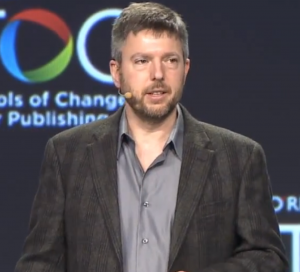So another case has come along to illustrate the excesses of the US system of statutory penalties for copyright infringement–here, a $1.5 million judgement against a guy for sharing 10 porn films on BitTorrent. Previous infringement cases suggest that there will be ample room to bat this around on appeal. The $1.5 million penalty may not stick. But what a waste of time and money that will be. What if we could start with a rationale outcome?
Fortunately, we can rely on the wisdom of the American people to lead the way. In addition to the legal reasons for treating such penalties as excessive and disproportionate, we can, for our part, throw in popular opinion. As we noted a couple posts ago, penalties for infringement attract only 51% support among adults (in our recent survey of 2303 Americans). Nearly all of this group supports the use of fines for infringement. Another 7% will consider the circumstances. So let’s look at fines.
It’s worth noting that this chart refers to downloading not uploading. This is a mostly meaningless distinction for BitTorrent users, where downloading and uploading happens simultaneously, but it’s relevant in other contexts and still plays a role in organizing public opinion. For reasons that remain unclear but which may include Fishers role in ‘seeding’ the files on the network and failing to appear in court, the judge opted for the statutory maximum of $150,000 per infringement.
Is this reasonable? Americans overwhelmingly say no: fines of this magnitude are supported by less than 2% of those who support penalties, or less than 1% of the adult population overall.
Do you wonder what public opinion says about penalties for downloading a song, rather than a movie? Most people draw a distinction and the proposed fines are lower:
It’s worth noting that mega-judgements like that against Fisher are very rare and generally recognized as hopelessly inefficient by industry. The porn industry is among the last of the major content groups to engage in this type of civil enforcement against consumers. Overall, the trend is toward cheaper, automated, mass enforcement–capable of sweeping in many more people and processing more low-level fines without all the expense of due process in the courts. This is, broadly speaking, the HADOPI model in France and the much less scrupulous mass-settlement business models of a number of US and European law firms. It will soon be the ‘six-strikes’ model in the US. This is the shift to what we might call modern enforcement. To borrow from and abuse one of my formative texts: from authority asserted through crushing ‘spectacular’ punishment to one asserted through mass surveillance and ‘corrective’ punishment.
We’ve alluded before to the disagreements about whether such strategies will ‘work’ and what the criteria of ‘working’ would look like. Let’s ask a different but related question? What are the conditions of legitimacy of such a system?
Well, proportionality is one. Our study shows bare majority support for warnings and modest fines. The French HADOPI system, in sanctioning its first alleged infringer, issued a 150 euro fine. Stronger penalties, our data suggests, are very unpopular.
Trust and due process are another. Annemarie Bridy has provided a very detailed look at the ways the US six-strikes model measures up on a range of these concerns–from fairness to transparency. Our data suggests that public opinion is pretty clear about the gold standard in these matters: the courts, not private stakeholders.
What does this mean? In our view, it means that–as a private deal between ISPs and content providers–the US six-strikes enforcement model begins with a legitimacy deficit. This isn’t unprecedented, but as a new institution with a potentially intrusive role in the lives of Internet users, it probably means that it has little room to screw up. The proposed $35 fee to challenge an accusation of infringement–at one level a reasonable sounding effort to discourage frivolous challenges–seems designed to test public views of the fairness of the process.
As we have said before, the underlying problem is that mass enforcement and due process are very hard to reconcile. Online surveillance is cheap, but due process is expensive. It doesn’t scale easily. Many types of enforcement confront this dilemma. Enforcement institutions can manage it if they have a reasonably high degree of legitimacy, if they are enforcing widely-accepted norms, and if they provide opportunities for impartial adjudication. Think the police and traffic violations. In IP law, think ‘commercial-scale piracy.’ Untrusted private actors, taking large-scale action in defense of crumbling norms, will face a tougher battle.
Update: Now there are two guys facing $1.5M fines.









